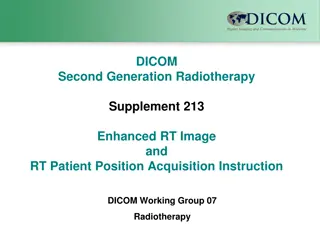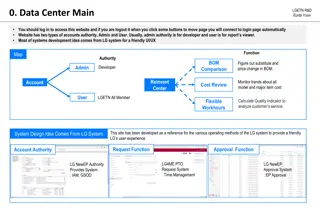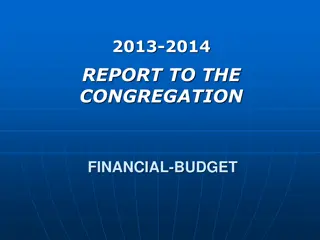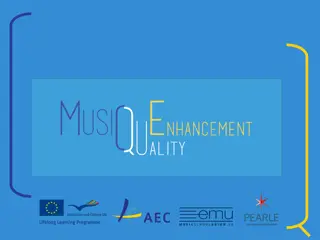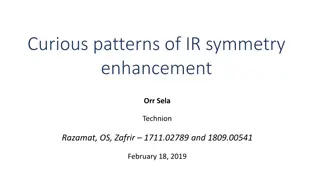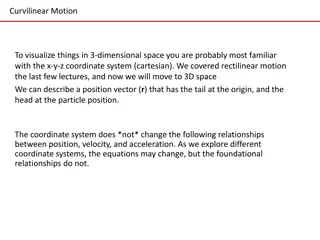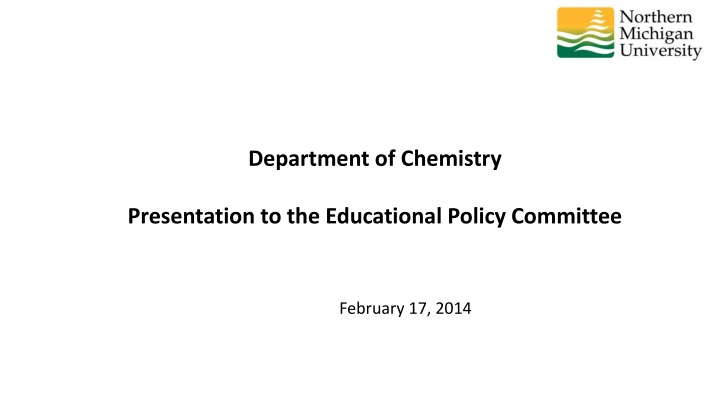
Department of Chemistry: Meeting Educational Needs and Challenges
Explore the Department of Chemistry's presentation to the Educational Policy Committee outlining areas of need, enrollment trends, credit hour production, demand for courses, and the impact of enrollment growth on student research opportunities. Discover the faculty-identified areas of need, the increase in credit hour production, and the challenges posed by rising demand for high-touch educational experiences in chemistry.
Download Presentation

Please find below an Image/Link to download the presentation.
The content on the website is provided AS IS for your information and personal use only. It may not be sold, licensed, or shared on other websites without obtaining consent from the author. If you encounter any issues during the download, it is possible that the publisher has removed the file from their server.
You are allowed to download the files provided on this website for personal or commercial use, subject to the condition that they are used lawfully. All files are the property of their respective owners.
The content on the website is provided AS IS for your information and personal use only. It may not be sold, licensed, or shared on other websites without obtaining consent from the author.
E N D
Presentation Transcript
Department of Chemistry Presentation to the Educational Policy Committee February 17, 2014
Chemistry Faculty identified the following as areas of greatest need Forensic Chemist (Director of the Forensic Biochemistry Program) Biochemist or Bioanalytical chemist
Enrollment Trends Affecting Demand for Chemistry Courses Department Fall 2007 Chemistry Biology Clinical Sciences EEGS Pre- Professional Sports Science Fall 2012 152 699 437 Change +50 +263 +226 102 436 211 Total Change + 597 student 221 130 299 92 +78 -38 61 79 +18 51%
Total Credit Hour production by the Department has increased every fall for the past several years 3628 Credit Hours Fall 2007 4713 Credit Hours Fall 2012 ~30% increase We have started offering CH 112, CH 220, and CH 321/22 both Fall and Winter. We have increased the number of lab sections in CH 111, 112, 321, 322, and 450 We have limited offerings of Environmental Chemistry Nursing now only requires 1 semester of Chemistry Our graduate program was suspended Even with this increase in credit hour production there are waiting lists for organic chemistry and biochemistry almost every semester Our 100-level course typically run at capacity both Fall and Winter.
Demand for 400-level courses currently exceeds capacity CH 435 Gas and Liquid Chromatography CH 436 - Modern Spectroscopy CH 437 Atomic Spectroscopy CH 454 Biochemical Techniques All are consistently over enrolled in recent years All are hands-on instrumentation courses /very time consuming Alumni have repeatedly said that these course are among the best preparation for jobs The high touch aspect of these courses set NMU apart
Growth in Enrollment Increases Demand for Student Research Opportunities Winter 2014 16 students registered for course credit for research plus Freshman Fellows and student volunteers double the number in Fall 2007 Because of the need to cover additional labs and lectures, being a research mentor is devalued and dis-incentivized at the same time demand for such opportunities are increasing The high-touch educational opportunities that prepare our students for graduate school or give them an advantage in the job market are at risk
Understaffing Harms Professional Development/Scholarship Release Time Awards or Reduced Load for research for even one faculty member: Cancel classes or force a colleague to do an overload Society High contact hours due to overloads risk accreditation by the American Chemical There is a very limited pool of potential adjuncts to cover any chemistry courses this is even more of an issue with upper level courses
Benefits of an Enhancement Position Accreditation of our Forensic Biochemistry program ~30 to 50 % increase in enrollment based on AAFS data expected 6% job growth in the next decade (BLS data) Keep class size for 300- and 400-level course manageable maintain the high touch aspects of our program Offer sufficient sections of lower level courses to meet demand improve the average time to graduation for science majors Improve the climate for student research and faculty scholarship Increase flexibility in staffing key courses





